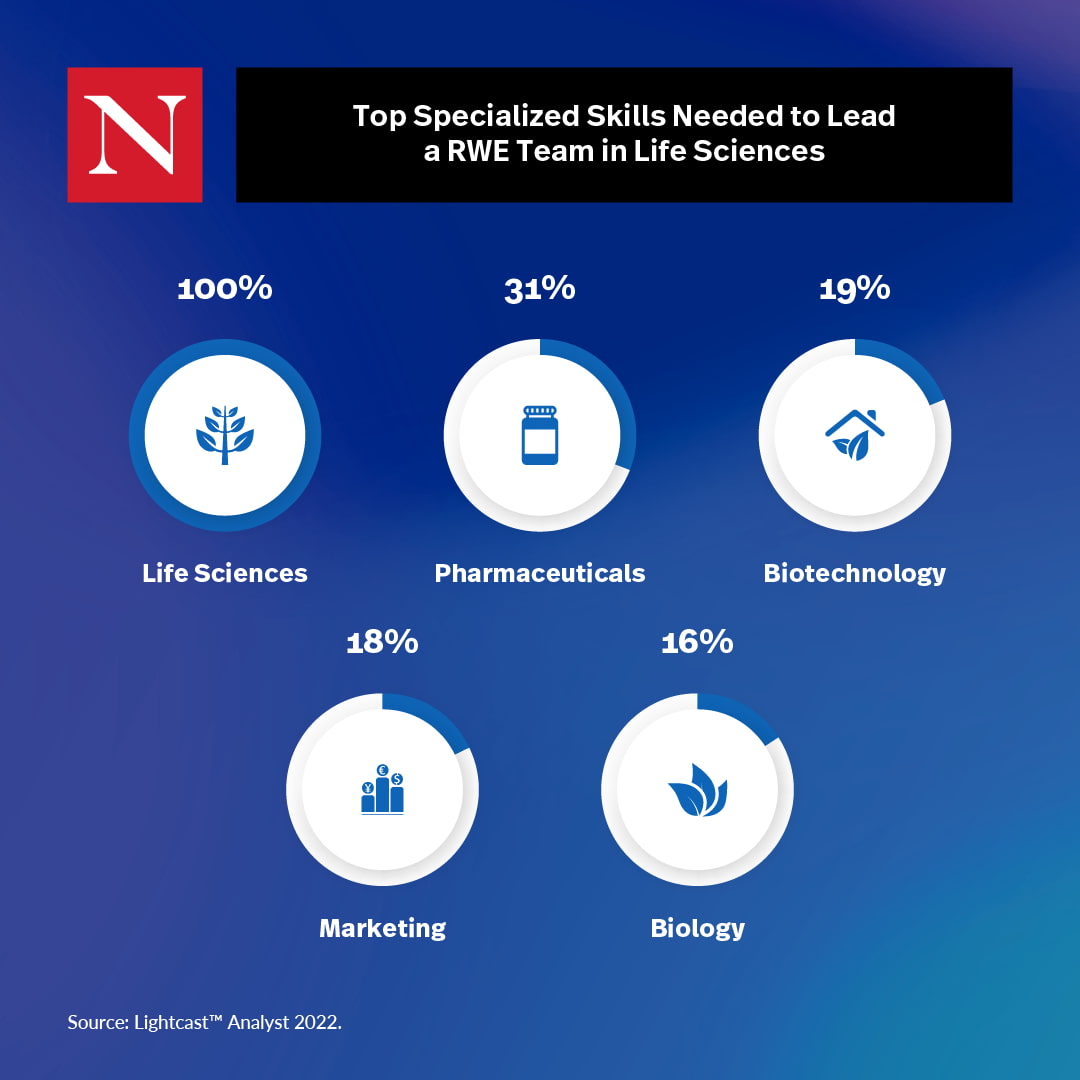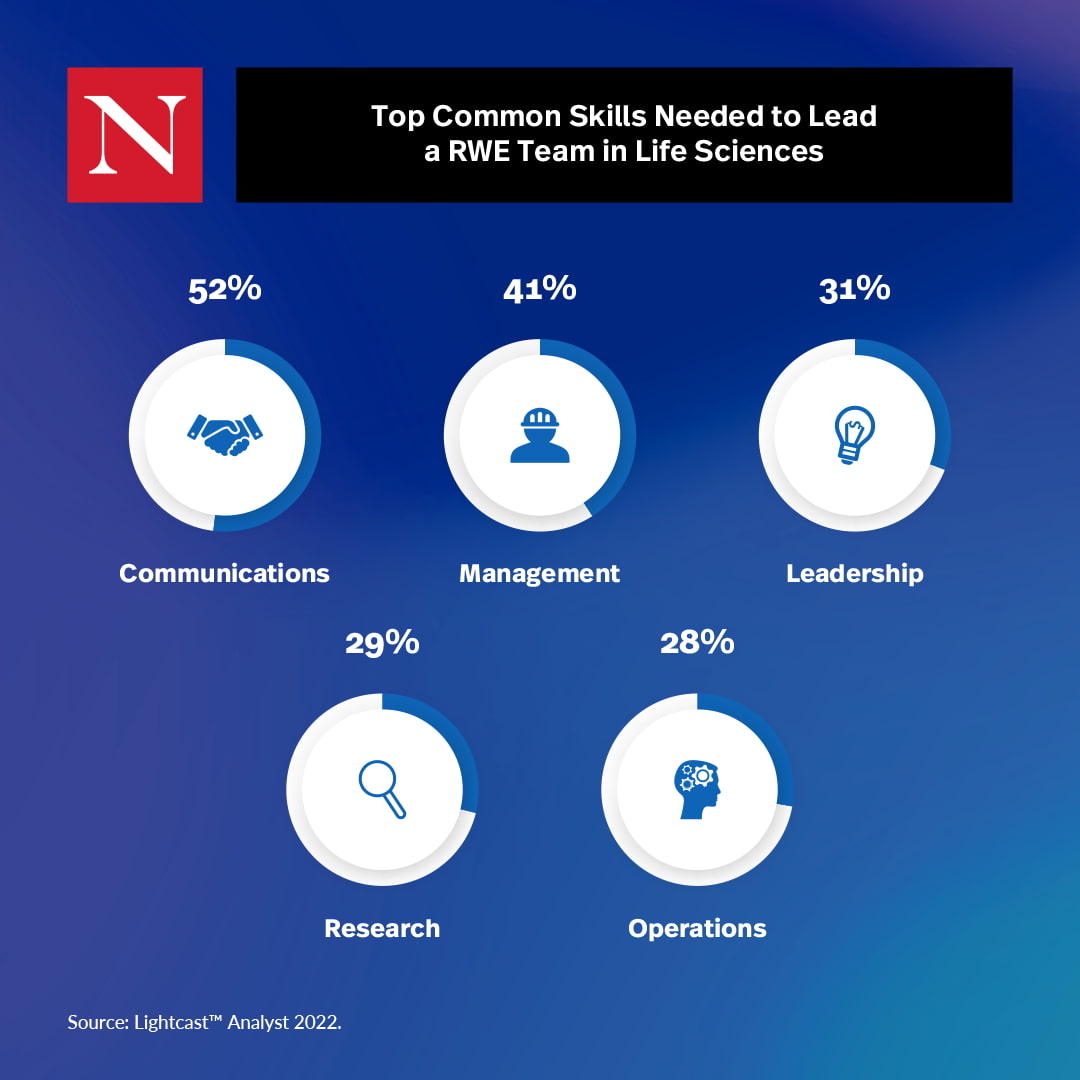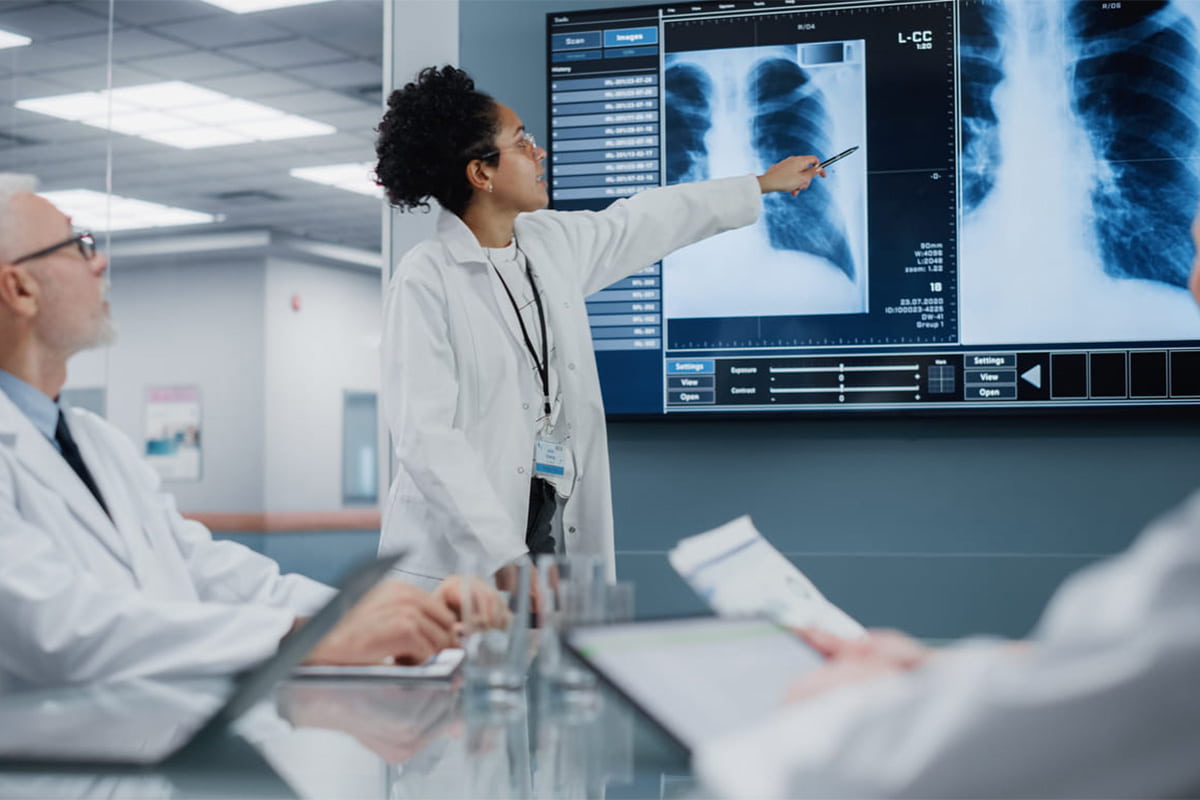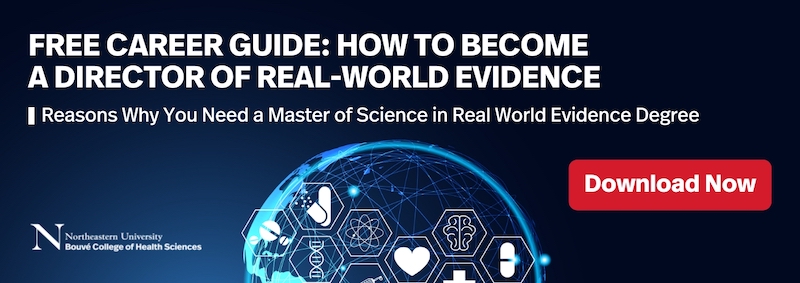Real-world evidence (RWE) is a research discipline designed to evaluate the safety and efficacy of medical products from real-world data (RWD). Unlike data from clinical research, real-world data doesn’t come from a controlled environment but rather routine clinical interactions with real patients via electronic health records, administrative billing data, and other health-related sources.
Leading a real-world evidence team means contributing significantly and directly to decisions that affect people’s health. It can help uncover data that a clinical trial might have missed due to its restrictions, or change the insights that researchers concluded from previously acquired data based on real-life observations.
For those interested in becoming an effective leader in this dynamic sector of the life sciences and healthcare industry, here’s an overview of what you need to lead a real-world evidence team, the skills required for long-term success, and how you can develop these valuable competencies.
Interested in a Career in Real-World Evidence?
Download our free guide to learn the skills you need to advance in the field.
What Do Real-World Evidence Leaders Need?
Real-world evidence (RWE) is a diverse space to be in. Therefore, leading a team of real-world evidence professionals requires a wide range of skill sets. According to Kristin Kostka, the director of the Observational Health Data Sciences and Informatics (OHDSI) Center at Northeastern University’s Roux Institute, real-world evidence leaders manage “the continuum of everything from ideation—what clinical questions we should ask of the data—to actually answering those questions. They lead their analytical team, build and validate statistical methods, and answer clinical questions.”
Since RWE leaders oversee every aspect of RWE projects, they need common skills, such as leadership and management. They need to guide their team members when implementing project initiatives, ask the right questions, and assist in meeting team goals. RWE leaders also need to be versed in project management, organizing everything from timelines and budgets to stakeholder management.
Top Skills Needed to Lead a Real-World Evidence Team in Healthcare
While there are skills that are essential to any high-level RWE professional, there are several specialized competencies they should consider obtaining when working in the healthcare sector. According to a government report, here are the top skills every real-world evidence healthcare professional should consider developing.

Familiarity with Electronic Health Records
Electronic health records (EHRs) refer to the electronic storage of patients’ personal health information. EHR systems capture details from routine healthcare interactions including diagnoses, diagnostic testing, imaging studies, prescription ordering patterns, and narratives from treating providers. These systems are a rich source of information that can be leveraged to search, organize, and aggregate a patient’s unique experience in the healthcare system. RWE experts are savvy in this regard, both in their ability to understand how providers utilize EHRs to capture clinical information and how these data can be stitched together to tell a story.
Health Data Management
Health data management is the compilation of electronic health data from various electronic health systems, allowing healthcare professionals to keep their patient data in one place. This process saves both time and money while delivering streamline care that improves health outcomes.
For real-world evidence leaders, health data management systems are a rich source of real-world data. Knowing how to request access, develop extraction workflows to repurpose, and utilize the data readily available in these systems is another key skill to succeed in your role as a RWE team leader.
Computer Science
Computer science, although a broad area of skills, refers generally to the ability to navigate and manipulate computational systems and information. Since most real-world data is digitally stored, RWE professionals need to know how to access and analyze digital data. Acquiring skills in computer science through repeated use of healthcare softwares or learning coding languages, can help any real-world evidence team be successful.
Large Scale Research
It’s no secret that RWE leaders think big; but how big is too big? The definition of scalability is the ability to handle growth without losing efficiency or efficacy. In the real-world evidence field, scalability is a key specialized skill for leaders because data continues to be available in increasingly large amounts. A leader in RWE needs to be able to handle exponential data growth with scalable processes to ask the right questions, come up with appropriate methods to analyze growing amounts of data, and share actionable conclusions for real-world results.
Top Skills Needed to Lead a Real-World Evidence Team in Life Sciences
If healthcare refers to the providers of health services, then life sciences covers all the industries that support the healthcare system, including pharmaceuticals, medical devices, and biotechnology. While both healthcare and life sciences benefit immensely from the real-world evidence discipline, skills required to lead a RWE team in life sciences differ slightly from healthcare.

Background Knowledge of Life Sciences
As defined above, life sciences is the study of everything health-related, including pharmaceuticals, medical devices, and biotechnology. While real-world evidence processes remain the same in these fields, the specialized knowledge required will vary depending on which industry you work in. For example, RWE professionals at a pharmaceutical company may deal with newly-developed drugs and how they affect patients, whereas RWE teams at a medical devices company may focus on imaging or detection data.
Pharmaceutical Development
The pharmaceutical industry researches, develops, and markets therapies used to diagnose, cure, treat, or prevent disease. RWE leaders in the pharmaceutical industry use a knowledge of the pharmaceutical development lifecycle as well as RWD skills to ensure clinical trials are cost effective through phase I-IV studies, as well as optimize the effects of the drug through post-market surveillance studies with regulators and patient advocacy groups.
Biotechnology
Biotechnology combines biology with engineering to hone cellular, biomolecular, and biological systems. Real-world evidence can provide insights into how biotechnology products affect—and can affect—peoples’ livelihoods to support research, development, and consumer access to new technologies.
Marketing
Real-world evidence plays a key role in successful marketing of life sciences products and services. With proper market research, competitive analysis, and epidemiological studies, real-world data can be utilized to safely and effectively market the benefits of medicinal drugs, devices, vaccines, and other life sciences products to the general public.
Biology
Life sciences is the umbrella term for the scientific study of life, while biology is the study of living organisms. Since biology focuses on studying how the human body works, knowledge in this field provides a crucial foundation to understanding real-world evidence and its implications.

Communications
The ability to communicate effectively is a key skill for any leader—real-world evidence leaders are no exception. Once projects or initiatives produce findings, a RWE leader needs to effectively communicate those conclusions to stakeholders and business leaders to enact change. Similarly, they must be able to clearly communicate expectations to their team members to ensure success.
Management
Management refers to both people and projects. Being able to manage both upper management and team members is crucial to the success of any business leader. At the same time, real-world evidence leaders oversee the entire process of real-world data analysis. The role requires impeccable people skills, as well as exceptional time management, budgeting, and organization competencies.
Leadership
Leadership may seem like an obvious trait necessary for a real-world evidence team leader, but the importance of this skill is heightened even more as a result of how new the real-world evidence field is. RWE leaders are tasked with constructing teams to conceptualize, analyze, and communicate the results of a study using observational health data to answer a clinical question. Although it existed previously under different names, such as health economics or health data analysis, real-world evidence is experiencing an evolution in popularity and the various ways it’s leveraged. Therefore, professionals with leadership traits will stand out as a guiding force in this discipline.
Research
Real-world data, in itself, is not evidence. Research is the ability to search for, locate, extract, organize, evaluate, and use/present information to derive a clinical insight. RWE leaders are masters of their craft, understanding the nuance of how different forms of observational health data are collected, organized, and standardized to generate accurate, reproducible, and well-calibrated evidence. It is essential that real-world evidence leaders are well trained in research methods and stay up-to-date on new developments in the field.
Operations
Operations is a skill necessary to implement strategies and plans into action. A RWE leader with operations skills is able to translate a plan into actionable steps for team members to produce tangible results. According to Kostka, “Soft skills are very important. We talk about these a lot in real-world evidence.” So while this isn’t an industry specific skill, it’s just as important to the success of prospective RWE leaders.
How to Develop Your Skills to Effectively Lead
Despite this long list of desired skills, obtaining these competencies isn’t a difficult task for professionals who are already working in the field. Here’s a look at the different methods RWE professionals can develop these valuable skills.
Education
As an up-and-coming career path, there aren’t many degree programs in real-world evidence. However, the few graduate programs on the market, like Northeastern University’s Bouvé College of Health Sciences’ Master of Science in Real-World Evidence in Healthcare and Life Sciences, are specialized degrees that assist students in developing foundational, specialized skills to succeed in the industry. This is achieved by providing opportunities to get real-world evidence experience prior to employment. Earning a master’s degree in RWE provides the space and instruction to develop these skills while earning valuable insight into this constantly evolving field.
Experience
Much like other career paths, experience can help develop industry-specific skills. It’s important to note that the experience doesn’t have to specifically be in RWE. In fact, many people already have experience in the field, through employment in data science, clinical research, or health records administration. As a result, many skills developed in these roles are easily transferable to a career in real-world evidence.
For professionals trying to obtain employment in the RWE space, but come from an unrelated background, an experiential learning program in real-world evidence also provides opportunities to gain experience in the field as a part of its curriculum. Northeastern’s Bouvé College of Health Sciences’ experiential learning model gives students opportunities to get hands-on experiences to develop skills through both education and work experience.
Boost Your Career in Real-World Evidence
Real-world evidence is an industry of growth and will continue to pave the path in healthcare and life sciences decision-making. Residing at the intersection of data analytics, clinical research, and project management, it is a career path that will interest many professionals looking to pivot into a more interesting field.
Learn more about how you can jumpstart your career in real-world evidence with a Master of Science in Real-World Evidence (RWE) at Northeastern University’s Bouvé College of Health Sciences.







Related Articles
4 Pressing Global Health Problems We Face Today
Global Health Careers: How Can I Make a Difference?
Compliance Specialists: Who They Are and What They Earn